THE EXORCIST. Timeless masterpiece, and still scary as hell
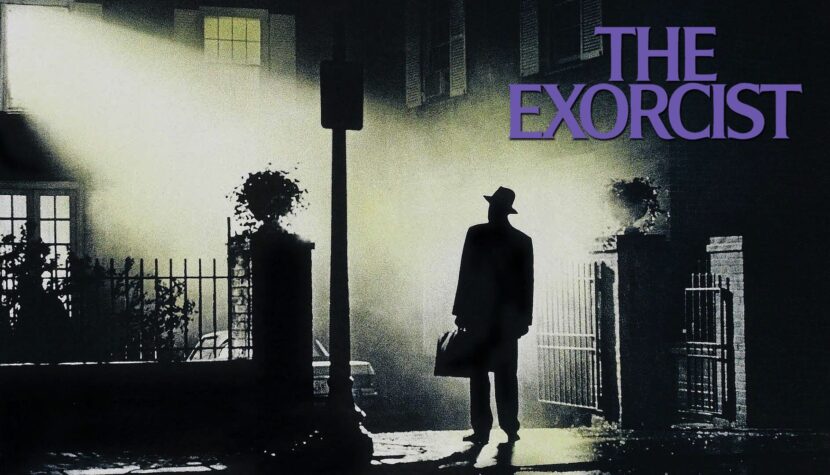
William Friedkin’s The Exorcist is arguably the most well-known and critically acclaimed (with 10 Oscar nominations) film of the horror genre, a genre typically overlooked when it comes to industry awards. It’s a horror, and not just any horror but the satanic variety. The primary, though rarely portrayed on screen, “character” in such films is a being commonly regarded as the embodiment of all evil—the Eternal Adversary, either in person or in the form of one of their more powerful minions. This is no different in the case of The Exorcist, based on the bestselling novel by William Peter Blatty (who also wrote the screenplay).
The plot of The Exorcist is quite simple: Chris MacNeil (Ellen Burstyn) is an actress raising her daughter Regan (Linda Blair) on her own. One day, strange things start happening in Ms. MacNeil’s house: unidentifiable sounds and signs begin to appear, and little Regan starts experiencing sudden fits of aggression. In short, there is a “third party” in the house. Father Karras (Jason Miller) is a doubting Jesuit, a man for whom the collar has become nothing more than a troublesome piece of clothing that exposes him. He has lost his faith, burned out, but a case he stumbles upon will awaken something in him that he never suspected was inside him.
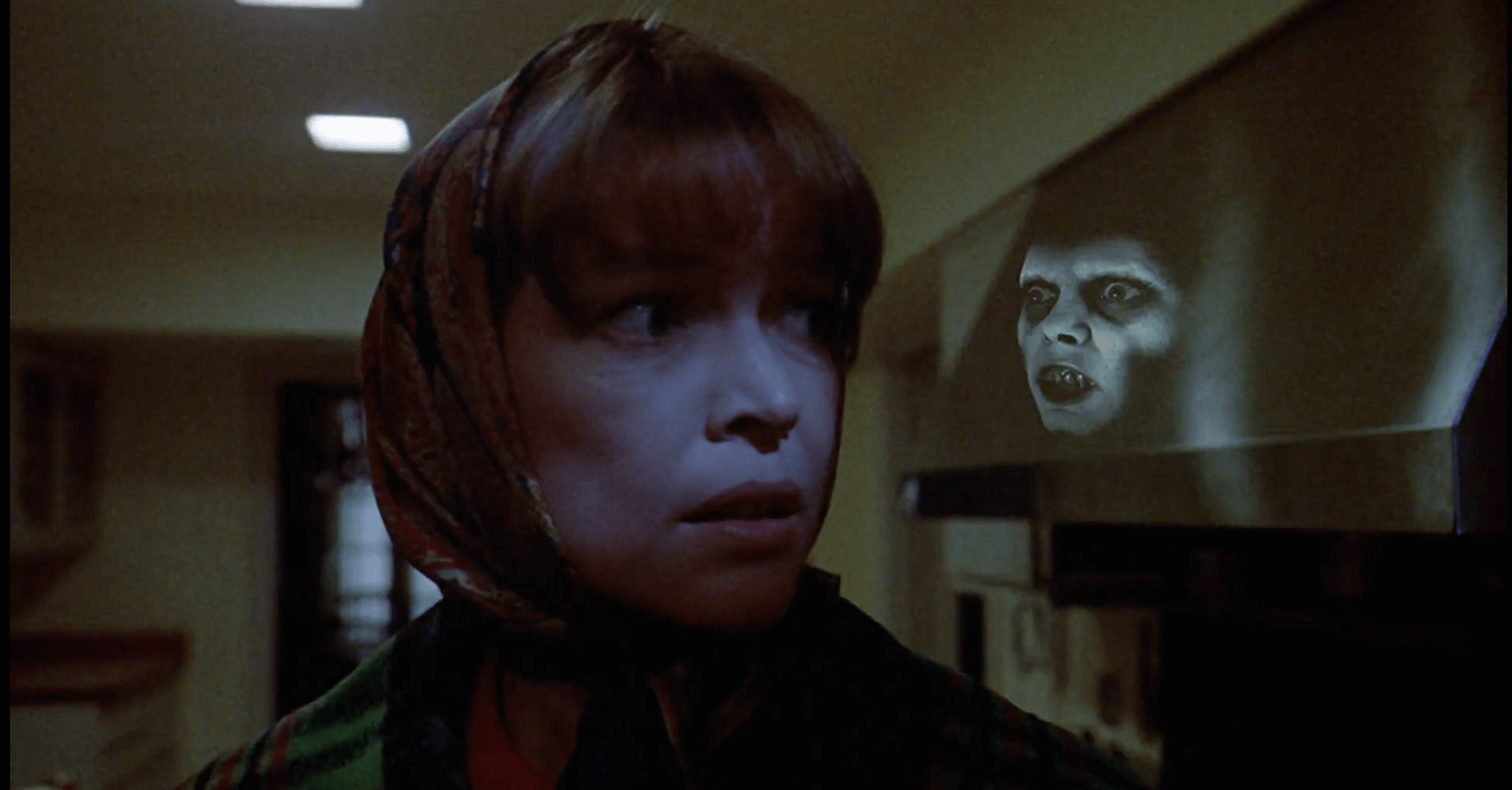
Even the title itself – The Exorcist – suggests that the central focus of the director will be on a person specializing in this unusual ritual. This is a somewhat misleading notion because the titular Father Merrin (Max von Sydow) is decidedly a secondary character, not insignificant but paradoxically not key. What seems to remain in the director’s sphere of interest are the reactions of Regan’s mother and Father Karras to the situation at hand. In this confrontation, the doubting priest Karras is the more important character, as he encounters a case that can change his disillusioned perspective on reality. Karras is an unfulfilled man, not abstaining from alcohol and seeking escape in physical extravagances. He is the antithesis of the stereotypical priest image imposed on the viewer. His life seems to be crumbling under its own weight; it lacks purpose. It’s hard to imagine someone potentially more susceptible to the antics of the Adversary than a man who has lost the pillars of his life, than a faithless Jesuit. Contradicting this image is Regan’s mother – a popular actress and a successful, happy woman. It is they both who will be most affected by their daughter Chris’s extraordinary case.
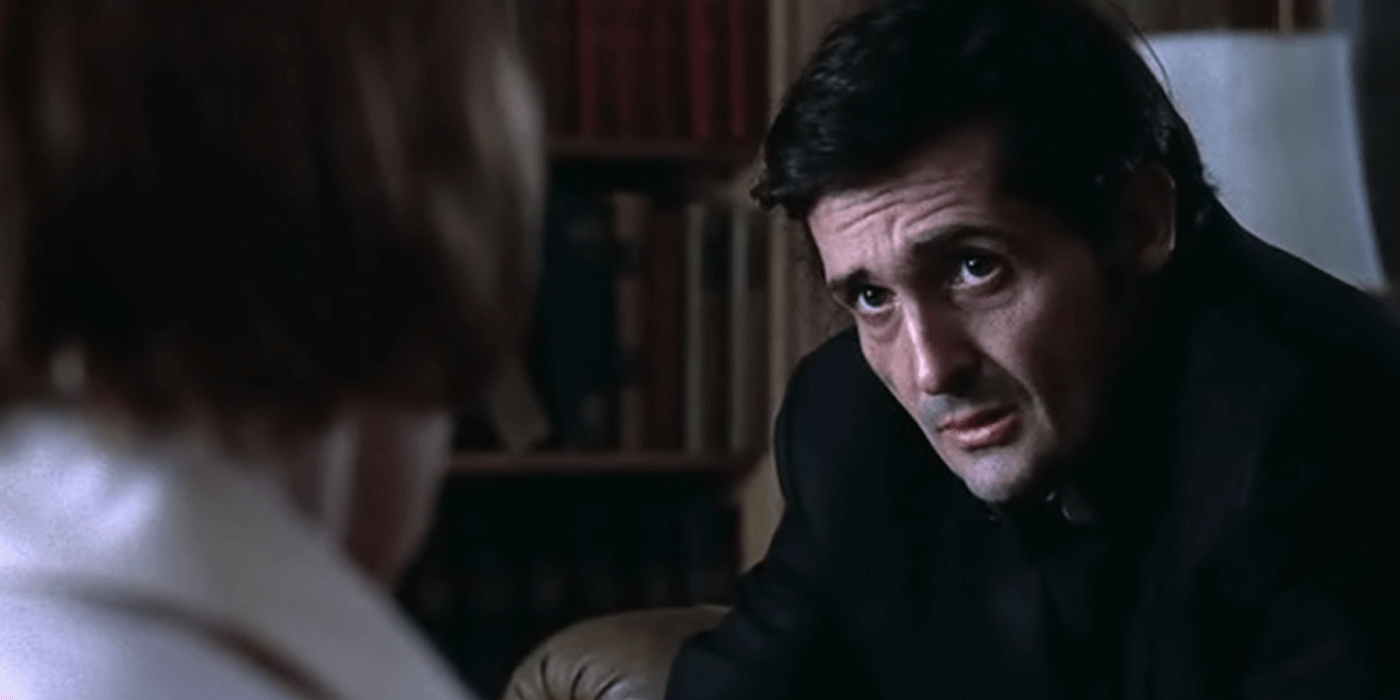
From the moment Father Karras meets Regan, the plot gains momentum, and the game begins. The demon tests how far he can go, seeming more interested in his adversary than the possessed girl. This surprising revelation leads us to think that Regan is not the true target of the attack, merely a pretext allowing access to more interesting victims from the demon’s perspective. Furthermore, the demon quite clearly indicates whom he’s after, leaving no doubt about who’s in control. The film’s characters follow the path set by the demon, succumbing to a destructive game in which they are mere pawns—weak and, more importantly, unaware. The exorcists believe they know what (or who) they are dealing with, while, in reality, they become victims of their own pride, challenging powers beyond their comprehension.
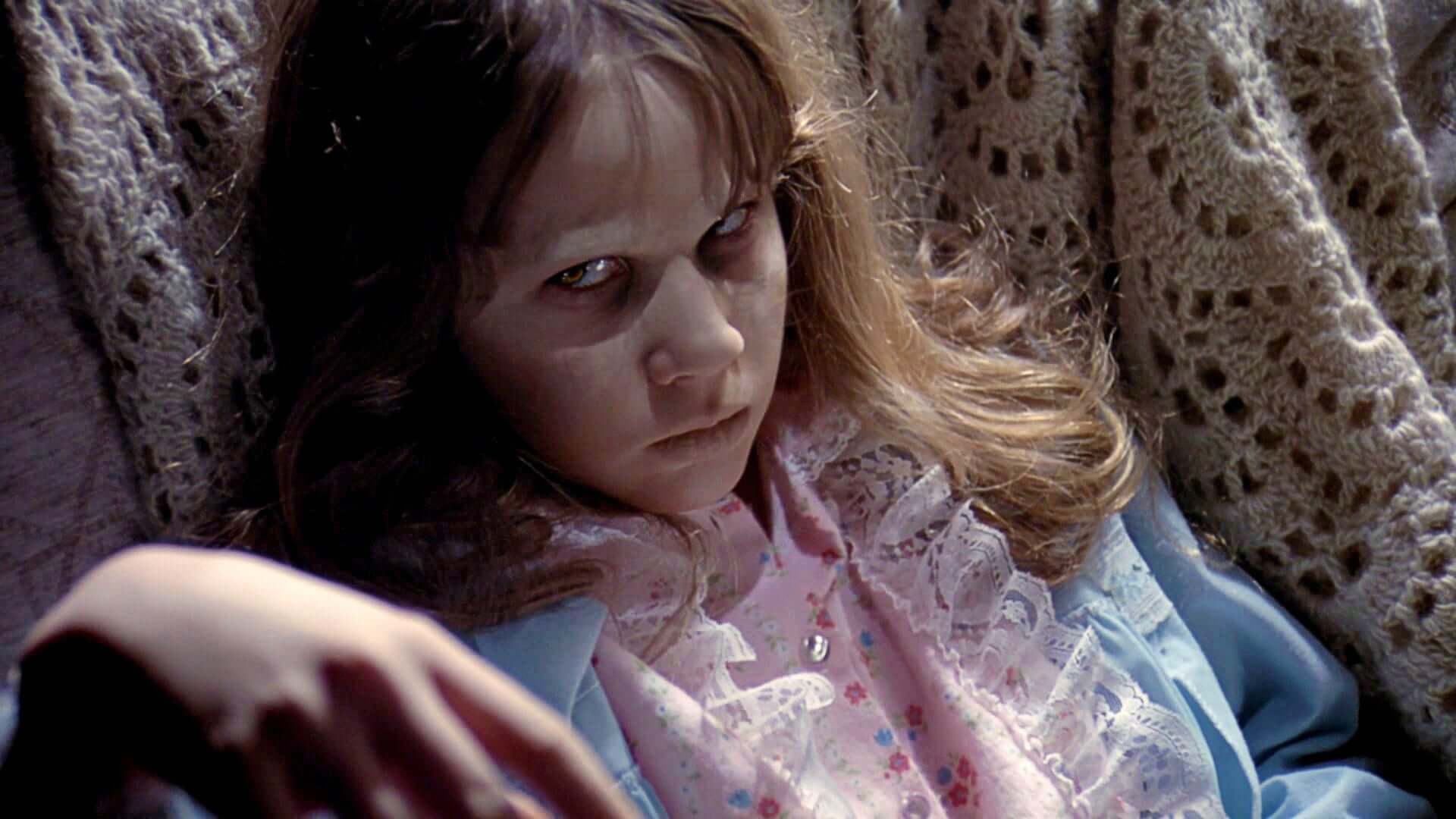
One cannot deny the demon’s refined, albeit wrapped in contemptuous words and dramatic flair, effectiveness. The game ends in a double victory, and the viewer receives a bittersweet happy ending as consolation. If there were any doubts about who emerges from this encounter unscathed, the final symbolic battle with the demon dispels them. Although he leaves Regan’s body, given the context of the situation, her body was not the most important part. Karras seems to provoke the demon to leave the girl’s body, but in reality, he pushes the priest to his breaking point, to opening himself up to an influence he had resisted until then. The tearing of the medallion necklace from the priest’s neck takes on symbolic significance, representing the last bastion of Karras’s faith. One might even ask, “Who is exorcising whom here?”
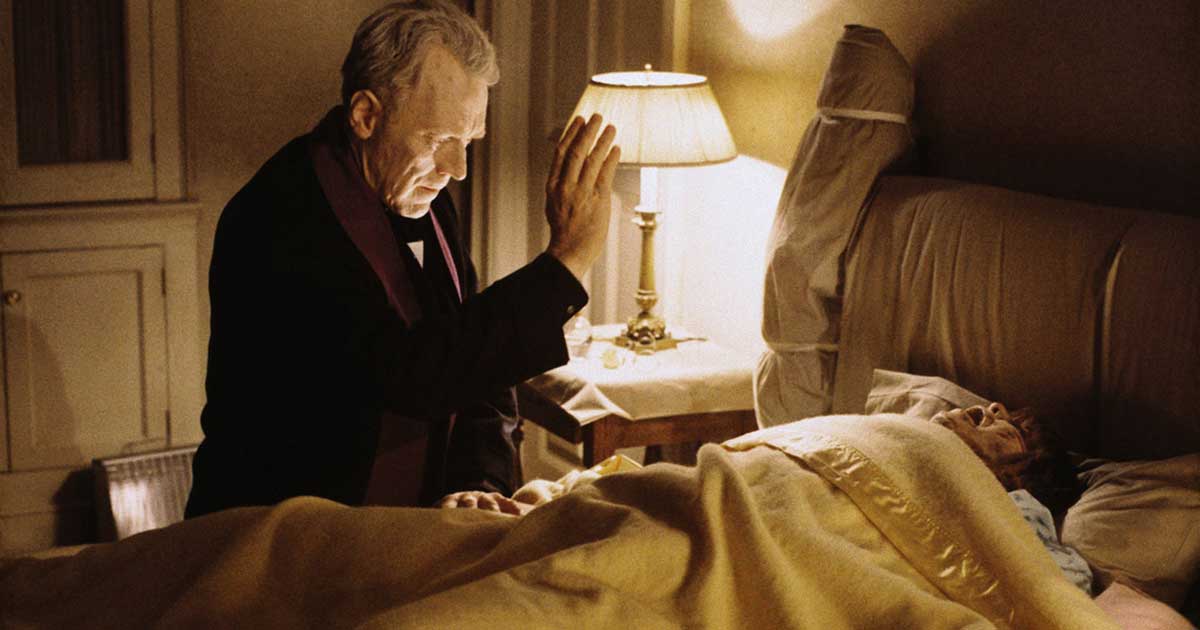
Despite its undeniable merits and critical acclaim, I don’t hold The Exorcist in as high regard as other prominent representatives of the genre like Rosemary’s Baby or The Omen. William Friedkin, despite his masterful camera work, incredible attention to detail, and excellent use of lighting, focused on an aspect of the diabolical work on Earth that is less appealing to me as a viewer. The very concept of possession, present in culture and folklore for ages, is too literal to evoke anything more than a fleeting sense of superficial fear for me.
Friedkin, almost entirely neglecting the psychological aspect of possession, does not create the feeling of dealing with a truly unsettling and realistic story. Paradoxically, this is not a criticism, as the director and screenwriter deliberately chose to focus on observing not so much the progressing “illness” but rather the reactions of those around and the changes occurring in the characters. By the creators’ choice, we witness the ongoing process of the girl’s possession through the eyes of those close to her. They are more interested in the reactions of the mother and the priest than the much more intriguing essence of the possession. In short, the real criticism I can level at The Exorcist is that it shows “what and how” while I am more interested in “why.”
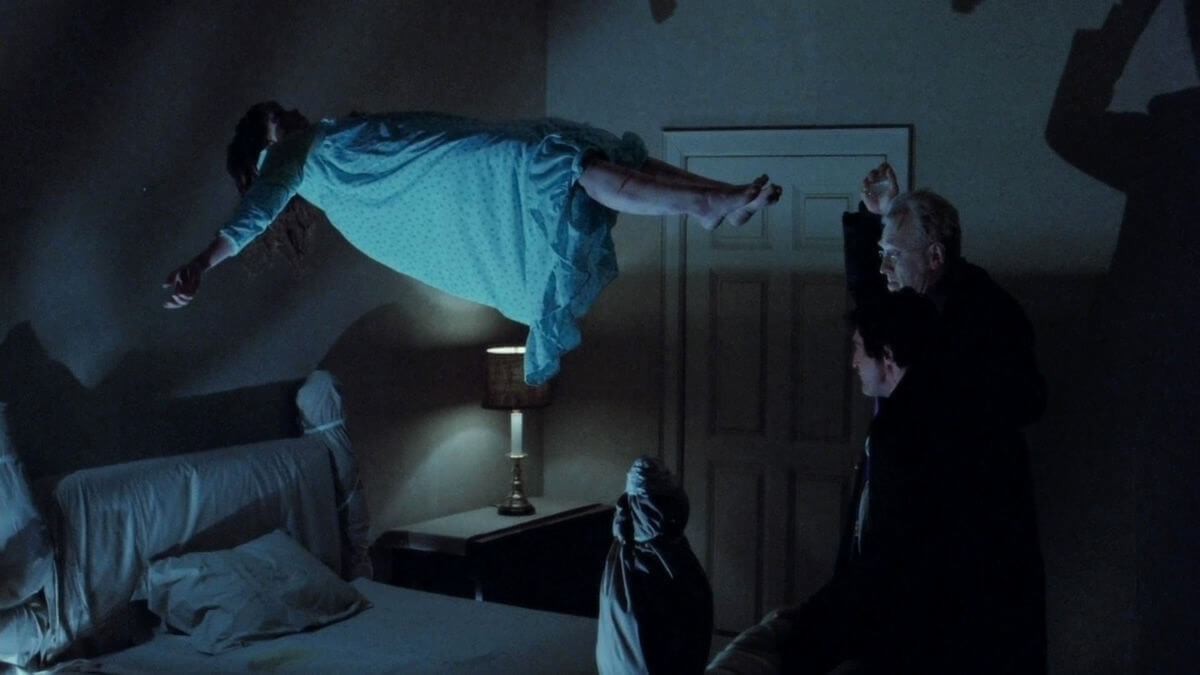
What interests me most as a viewer is not the answers but the questions, which I must infer in this case. Is possession a demonstration of power, or is it a desperate attempt to manifest its presence? On the other hand, does the Adversary who haunts our dreams need any physical manifestation at all? Is hiding in the shadow of human ignorance more advantageous, allowing it to act in a way only visible to a few? Are its actions a sign of powerlessness or provocation? And if so, whom is it provoking? This theme, which has significant impact on the viewer, is barely explored by Blatty and Friedkin but is what leaves an under-the-skin sense of unease in the works of Polanski, Donner, or even The Devil’s Advocate by Taylor Hackford—almost-plausible situations.
Nevertheless, The Exorcist remains one of the best and purest horror films, consistently giving viewers involuntary shivers. In times when horror movies tend to evoke disgust rather than fear, this is an invaluable quality.

